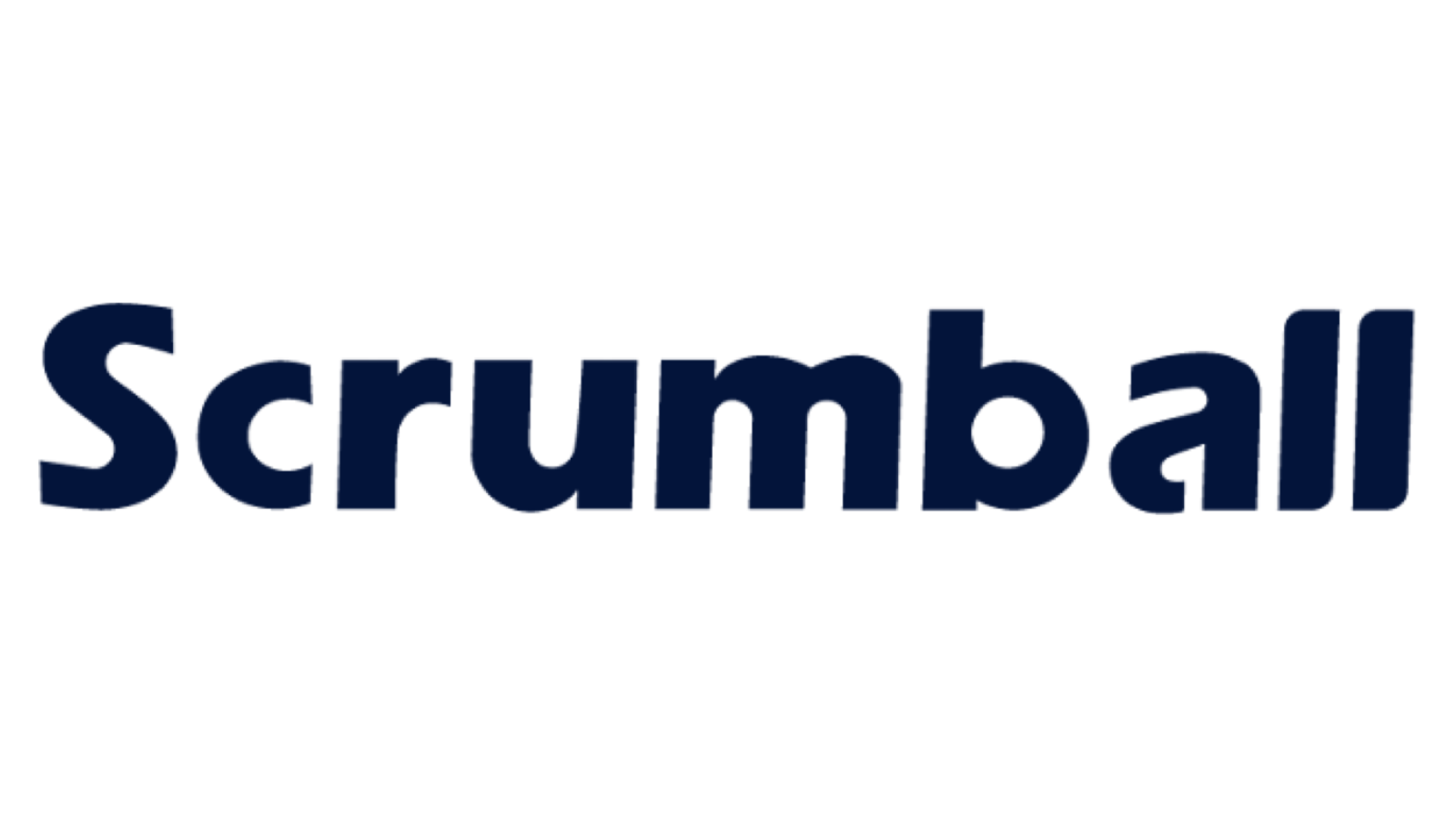Top Marketing Automation Platforms Features Compared

Choosing the right marketing automation platform can transform your business. With 75% of businesses already using marketing automation platforms, selecting one that aligns with your goals is crucial. The best marketing automation platforms streamline workflows, enhance customer engagement, and deliver real-time insights. These features eliminate guesswork and boost productivity. By comparing the top marketing automation platforms, you can identify the one that fits your needs and drives success. This decision ensures better lead management, personalized campaigns, and improved ROI, helping you stay ahead in a competitive market.
Overview of Marketing Automation Platforms
What Are Marketing Automation Platforms?
Marketing automation platforms are software solutions designed to streamline and automate repetitive marketing tasks. These tools help you manage campaigns, track customer interactions, and analyze performance data. By automating processes like email marketing, lead nurturing, and audience segmentation, they save time and improve efficiency. For example, 61% of marketing leaders use these platforms to boost lead generation, while 57% focus on nurturing leads. These platforms also provide data-driven insights, enabling you to make informed decisions and optimize your strategies.
Why Are Marketing Automation Platforms Essential for Businesses?
Marketing automation platforms play a critical role in modern marketing strategies. They increase productivity by automating routine tasks, allowing your team to focus on creative and strategic initiatives. These platforms also enhance workflows, ensuring that marketing activities are well-organized and efficient. For instance, 80% of users report an increase in leads, while 77% experience improved conversion rates. Additionally, they strengthen customer relationships by personalizing interactions and delivering relevant content. With robust analytics, you can track campaign performance in real time and make adjustments to maximize ROI.
Key benefits include:
- Increased efficiency through simplified workflows.
- Improved lead nurturing with personalized customer journeys.
- Enhanced customer insights for better decision-making.
- Higher profitability due to better targeting and reduced inefficiencies.
Common Use Cases for Marketing Automation Platforms
Marketing automation platforms cater to various industries, offering tailored solutions to meet specific needs. Here are some common use cases:
| Industry | Use Cases |
|---|---|
| Online Retailers | Customize customer experience and target new/existing customers with personalized recommendations. |
| B2B Companies | Target decision-makers, nurture leads, email marketing, social media automation, audience segmentation, retargeting, analytics. |
| Healthcare | Keep patients informed with health education, appointment reminders, and streamline communications. |
| Educational Institutions | Automate admissions process and send targeted communications to prospective students. |
| Hotels | Personalize guest experience through pre-arrival and post-stay communications. |
| Financial Institutions | Market services to specific demographics based on income, profession, or location. |
For B2B companies, marketing automation platforms are particularly valuable. They enable you to nurture leads, automate social media campaigns, and analyze audience behavior. These tools also help you demonstrate ROI, which is a priority for 45% of marketing agencies. Whether you’re in retail, healthcare, or education, these platforms adapt to your needs, making them indispensable for businesses of all sizes.
Key Features to Consider

Lead Management
Lead Scoring and Segmentation
Effective lead management begins with scoring and segmentation. Lead scoring helps you identify which leads are most likely to convert. By assigning scores based on behavior, demographics, or engagement, you can prioritize high-potential leads. This ensures your marketing efforts focus on the right audience. Segmentation allows you to group leads into categories, tailoring your campaigns to their specific needs. For example, you can create targeted messages for different industries or customer preferences. These features improve efficiency and boost conversion rates by delivering relevant content to the right people.
Lead Nurturing and Tracking
Lead nurturing builds relationships with potential customers over time. Automated workflows guide leads through the sales funnel, ensuring consistent communication. Tracking tools monitor interactions, helping you understand customer behavior. This insight allows you to adjust your strategy and provide personalized experiences. For B2B marketing automation, nurturing leads is essential for maintaining engagement and driving conversions. By combining nurturing and tracking, you can create a seamless journey that aligns with your business goals.
Email Marketing
Email Campaign Automation
Email marketing automation simplifies the process of reaching your audience. Automated campaigns send timely messages based on triggers like sign-ups or purchases. This ensures your emails arrive when they’re most relevant. For example, you can send welcome emails to new subscribers or follow-ups to abandoned cart users. Automation saves time and keeps your audience engaged, making it one of the best marketing automation platforms' key features.
Personalization and A/B Testing
Personalization features take email marketing to the next level. Tailored messages, such as product recommendations or birthday discounts, show customers you understand their needs. A/B testing lets you experiment with subject lines, content, or visuals to find what resonates best. These tools improve engagement rates and help you refine your strategy. For B2B marketing automation, personalized emails can revive stale leads and keep prospects interested.
Integration Capabilities
CRM Integration
Seamless integration with CRM systems like Salesforce enhances your marketing automation platform’s functionality. Centralized data management provides a complete view of customer interactions. This helps you identify trends and tailor your campaigns effectively. Automated workflows triggered by CRM data ensure your sales team focuses on high-value leads. Integration also improves customer relationships by enabling personalized engagement.
Third-Party App Compatibility
Third-party app compatibility expands the capabilities of marketing automation tools. Connecting with apps like social media platforms or analytics tools streamlines your processes. For example, integrating with Google Analytics provides deeper insights into campaign performance. These integrations save time and ensure your platform adapts to your business needs. They also enhance ROI tracking, making them a critical feature to consider during your comparison of top marketing automation platforms.
Analytics and Reporting
Performance Metrics and Dashboards
Tracking performance is essential for understanding the success of your marketing efforts. Marketing automation platforms offer dashboards that provide a centralized view of key metrics. These dashboards allow you to compare data side by side, making it easier to identify trends and areas for improvement. Operational dashboards analyze past performance across digital channels, helping you refine your strategies. Strategic dashboards go a step further by offering predictive analytics, guiding your future campaigns. By using these tools, you can demonstrate your marketing team's contributions to organizational success and enhance accountability.
Dashboards also simplify complex data, making it accessible to all team members. This clarity ensures everyone stays aligned with your goals. When evaluating features to consider, prioritize platforms with robust reporting and analytics capabilities. These tools empower you to make data-driven decisions and optimize your campaigns effectively.
ROI Tracking
Understanding your return on investment (ROI) is critical for measuring the impact of your marketing automation platform. ROI tracking tools help you connect your efforts to tangible results. They show how your campaigns contribute to revenue, allowing you to allocate resources more effectively. For example, you can identify which channels deliver the highest ROI and focus your budget there.
These tools also provide insights into customer behavior, helping you refine your personalization features. By tracking ROI, you can justify your marketing spend and demonstrate value to stakeholders. This makes ROI tracking a must-have feature in the best marketing automation platforms.
Scalability and Customization
Adapting to Business Growth
As your business grows, your marketing automation platform must scale with it. Scalability ensures your marketing efforts remain efficient and personalized, even as your customer base expands. A scalable platform automates repetitive tasks and streamlines workflows, allowing your team to focus on strategic initiatives. It also enables personalized messaging for a growing audience, enhancing engagement and loyalty.
For example, marketing automation tools handle complex operations without compromising quality. They provide valuable insights through data analytics, helping you make informed decisions. When comparing platforms, consider how well they adapt to your business growth. This ensures your investment supports long-term success.
Customizable Workflows and Features
Customization is key to maximizing the value of your marketing automation platform. Customizable workflows let you tailor processes to your unique needs. For instance, you can create workflows that align with your sales funnel or customer journey. This flexibility ensures your platform supports your specific goals.
Customizable features also allow you to adapt as your business evolves. You can add new functionalities or modify existing ones to meet changing demands. This adaptability makes your platform a powerful tool for b2b marketing automation. By choosing a platform with robust customization options, you can create a solution that grows with your business.
Tip: Look for platforms that combine scalability and customization. These features ensure your marketing automation tools remain effective as your business changes.
Comparison of Top Marketing Automation Platforms

HubSpot
Standout Features
HubSpot stands out as a one-stop powerhouse for marketing needs. Its features include:
- A robust app ecosystem that supports seamless integration.
- Precise marketing ROI tracking to measure campaign success.
- Tools that align sales and marketing teams for better collaboration.
- Customizable workflows that adapt to your business requirements.
- A user-friendly interface that simplifies navigation.
HubSpot also offers a comprehensive content management system (CMS). This system allows you to create and optimize content effortlessly. Its actionable analytics provide insights to refine your strategies. These features make HubSpot one of the top marketing automation tools for businesses seeking a holistic solution.
Benefits and Limitations
HubSpot excels in automating repetitive tasks like email campaigns and social media marketing. Its integration with its CRM system ensures a unified experience. The platform is scalable, making it suitable for growing businesses. However, the cost can escalate quickly, especially for advanced plans. Lower-tier plans may lack some essential features. Customization, while available, can sometimes be challenging. Despite these limitations, HubSpot remains a strong contender among the best marketing automation platforms.
Marketo
Standout Features
Marketo is known for its sophisticated capabilities. Key features include:
- Advanced lead management with scoring and nurturing workflows.
- Dynamic email marketing with A/B testing and personalized content.
- Multi-channel marketing automation for consistent messaging.
- Comprehensive analytics to track ROI and campaign performance.
- Extensive integration options with other tools and systems.
These features make Marketo a preferred choice for businesses aiming to execute successful campaigns across multiple platforms.
Benefits and Limitations
Marketo simplifies workflows and optimizes content strategies. Its integration capabilities enhance data accuracy, while its analytics tools provide actionable insights. However, implementing Marketo requires a clear marketing strategy and proper system integration. Ensuring compliance with data protection regulations is also essential. Despite these challenges, Marketo’s capabilities make it a valuable tool for b2b marketing automation platforms.
Pardot
Standout Features
Pardot is tailored for B2B marketing automation. Its standout features include:
- Streamlined lead management and smart lead generation.
- Effortless email marketing with automated journeys.
- Social media integration for broader reach.
- Insightful ROI reporting to measure campaign effectiveness.
- Account-Based Marketing enhancements for targeted engagement.
Pardot’s Engagement Studio allows you to visualize and manage email drip campaigns. Its Einstein AI automates and optimizes campaigns using advanced insights. These features make Pardot one of the best marketing automation software options for B2B businesses.
Benefits and Limitations
Pardot integrates seamlessly with Salesforce, enhancing usability for existing users. Its intuitive interface makes it accessible for beginners. The platform supports multi-channel marketing and detailed segmentation. However, Pardot’s cost may be a concern for smaller businesses. Some users may find its advanced features overwhelming without proper training. Despite these drawbacks, Pardot remains a top choice for B2B marketing automation.
ActiveCampaign
Standout Features
ActiveCampaign offers a versatile marketing automation platform tailored for small and medium-sized businesses (SMBs). Its standout features include:
- A user-friendly interface that simplifies navigation.
- Built-in CRM functionality to align sales and marketing efforts seamlessly.
- An extensive library of pre-built automation recipes for quick strategy implementation.
The platform also excels in marketing automation with tools like drip email campaigns, autoresponders, and unlimited email sending. Its drag-and-drop email editor makes creating visually appealing emails easy, even without design skills. ActiveCampaign integrates with popular e-commerce platforms like Shopify and WooCommerce, enhancing its usability for SMBs.
Benefits and Limitations
ActiveCampaign provides personalized campaigns and automation tools for email marketing, sales automation, and CRM integration. Its robust landing page builder allows you to create customized visitor experiences. The platform supports over 200 pre-built automation sequences, saving time and effort.
However, some limitations exist. Users often report slow load times, which can disrupt workflows. Customer support may involve long wait times, making issue resolution slower. Frequent pricing increases could deter budget-conscious businesses. Despite these challenges, ActiveCampaign remains a strong contender in the marketing automation comparison for SMBs.
SharpSpring
Standout Features
SharpSpring stands out as a cost-effective marketing automation platform. It provides an all-in-one tech stack, eliminating the need for multiple tools. Key features include:
| Feature | Benefit |
|---|---|
| All-in-One Marketing Automation | Offers a full feature set for a fraction of the cost of leading competitors. |
| Integration Capabilities | Built to integrate easily with existing tools, reducing costs related to switching platforms. |
| Affordable Pricing Model | Designed to be affordable for small to medium-sized businesses, enhancing cost-effectiveness. |
SharpSpring’s pricing model makes it accessible for SMBs. Its integration capabilities ensure seamless workflows, while its comprehensive feature set supports growth without additional costs.
Benefits and Limitations
SharpSpring increases efficiency by centralizing marketing efforts. It enhances lead generation through better tracking and nurturing. The platform maximizes marketing spend by reducing operational inefficiencies. However, the lack of detailed analysis on potential challenges may leave some users unprepared. SharpSpring’s affordability and robust features make it a valuable option in the marketing automation tools market.
Adobe Marketo Engage
Standout Features
Adobe Marketo Engage differentiates itself with advanced features designed for sophisticated marketing strategies.
| Unique Feature | Description |
|---|---|
| Deep Analytics Insight | Provides a comprehensive view into campaigns, enhancing decision-making. |
| Advanced Behavior Tracking | Enables highly tailored marketing strategies based on user interactions. |
| Robust Personalization | Allows content modification based on user interactions, surpassing competitors. |
These features make Adobe Marketo Engage a top choice for businesses seeking advanced analytics and personalization capabilities.
Benefits and Limitations
Adobe Marketo Engage offers advanced analytics, lead nurturing, and campaign optimization. These tools help you refine strategies and achieve better results. However, the platform has a steep learning curve, which may require additional training. Integration limitations and resource-heavy operations could pose challenges for smaller teams. Despite these drawbacks, Adobe Marketo Engage remains a powerful tool for b2b marketing automation.
How to Choose the Best Marketing Automation Platform
Assessing Your Business Needs
Budget Considerations
Start by defining your budget. This helps you narrow down options and avoid overspending. Consider not just the upfront cost but also hidden expenses like setup fees or additional features. Evaluate the platform’s pricing structure to ensure it aligns with your financial goals. Free trials or demos can help you assess whether the platform delivers value for its price. Always weigh the potential return on investment (ROI) to justify your spending.
Team Size and Expertise
Your team’s size and skill level play a crucial role in selecting a marketing automation platform. A user-friendly interface is essential if your team lacks technical expertise. For larger teams, advanced features like detailed analytics or customizable marketing workflows may be more suitable. If your team has limited experience, prioritize platforms offering robust onboarding support and training resources. This ensures a smoother transition and better utilization of the platform.
Matching Features to Goals
Short-Term vs. Long-Term Goals
Identify your immediate marketing needs and long-term objectives. For short-term goals, focus on automating repetitive tasks like email campaigns or lead tracking. Long-term goals may require scalability and advanced analytics to support business growth. Choose a platform that balances efficiency with personalization. For example, automation can handle data collection, while personalized messages maintain customer engagement. This approach ensures your platform supports both short-term wins and sustainable growth.
Industry-Specific Requirements
Different industries have unique marketing needs. Retailers may prioritize e-commerce integrations, while B2B marketing automation often requires lead nurturing and segmentation. Evaluate whether the platform offers features tailored to your industry. This ensures your marketing workflows align with your business model. Platforms with customizable options can adapt to specific requirements, making them a versatile choice.
Evaluating Support and Resources
Customer Support Options
Responsive customer support is vital for resolving issues quickly. Look for platforms offering multiple support channels like live chat, email, or phone. Some platforms provide dedicated account managers for personalized assistance. Check user reviews to gauge the quality of support. Reliable customer service ensures minimal disruptions to your marketing efforts.
Training and Documentation
Comprehensive training and documentation simplify the onboarding process. Platforms with detailed guides, video tutorials, and FAQs empower your team to use the tool effectively. If your team faces complex integration challenges, consider hiring IT professionals or consultants. They can bridge software gaps and ensure a smoother implementation. Strong training resources maximize the platform’s potential and enhance your team’s confidence.
Choosing the right marketing automation platform can significantly impact your business. By comparing the features of top marketing automation platforms, you can identify tools that address your specific needs. Focus on automation capabilities, integration options, and scalability to ensure the platform supports your goals. Gather feedback from your team to evaluate usability and compatibility. Exploring free trials or demos is essential. These hands-on experiences let you test features and assess how well the platform aligns with your operations. This approach ensures you make an informed decision that drives long-term success.
FAQ
What is the primary purpose of a marketing automation platform?
A marketing automation platform helps you streamline repetitive tasks like email campaigns, lead tracking, and customer segmentation. It improves efficiency, saves time, and enhances customer engagement by delivering personalized experiences.
How do marketing automation platforms improve lead management?
These platforms score and segment leads based on behavior and demographics. They also nurture leads through automated workflows, ensuring consistent communication. This approach helps you focus on high-potential prospects and boosts conversion rates.
Can small businesses benefit from marketing automation tools?
Yes, small businesses can use these tools to automate tasks, save time, and improve customer engagement. Many platforms offer affordable pricing and user-friendly interfaces, making them accessible for businesses with limited resources.
What should you prioritize when choosing a platform?
Focus on features like scalability, integration capabilities, and analytics. Ensure the platform aligns with your business goals and offers robust support. Free trials or demos can help you evaluate its usability.
Are marketing automation platforms difficult to implement?
Most platforms provide onboarding resources, tutorials, and customer support to simplify implementation. Choosing a user-friendly platform and involving your team in the process ensures a smoother transition.
See Also
Best Platforms for Influencer Marketing in E-commerce
Navigating Influencer Marketing Tools for Small Enterprises
Essential Influencer Marketing Platforms to Explore in 2024

